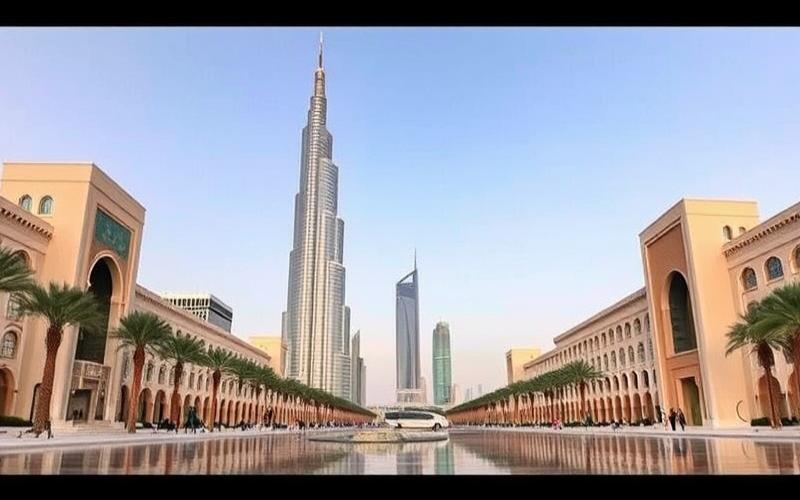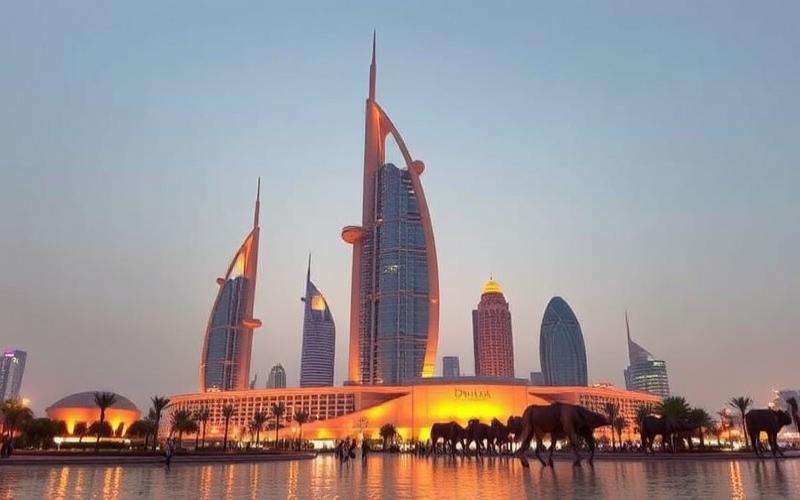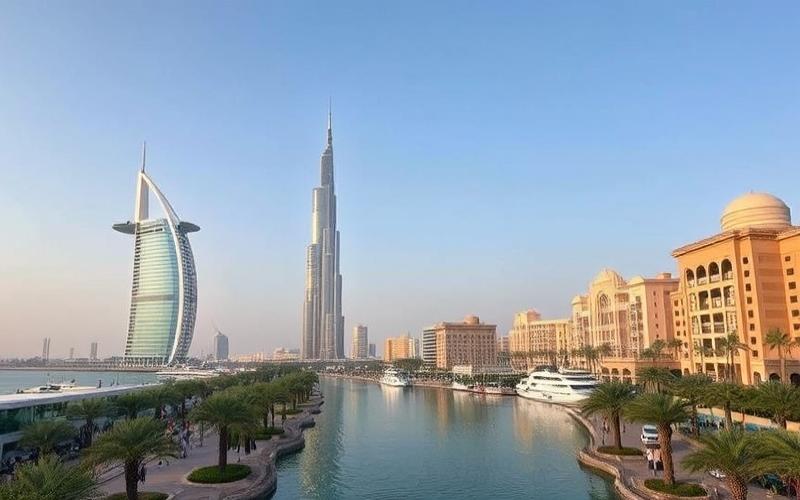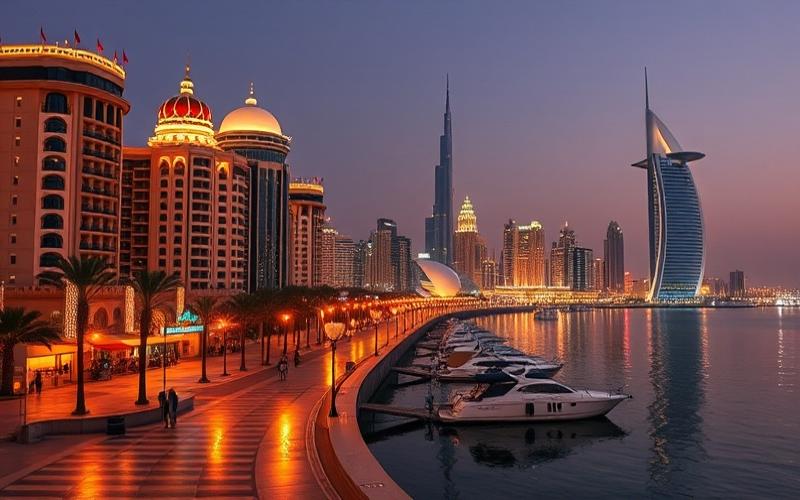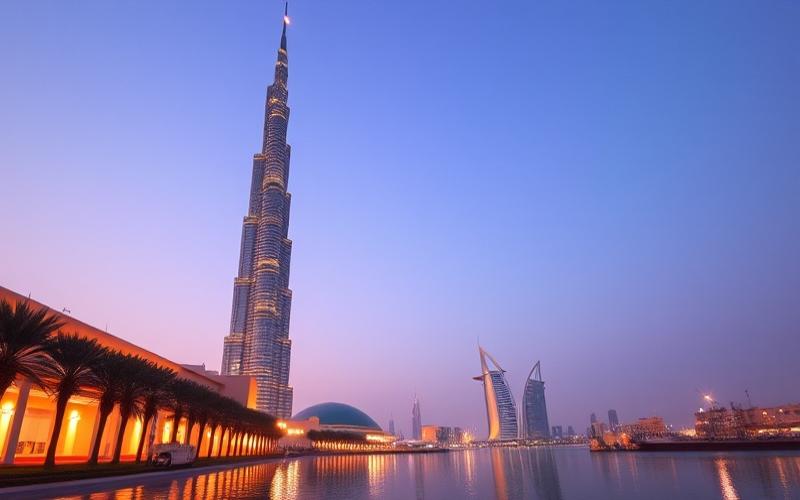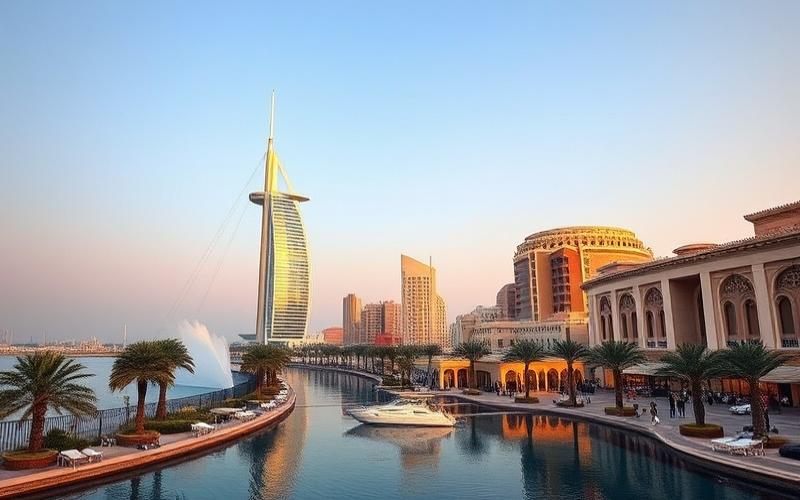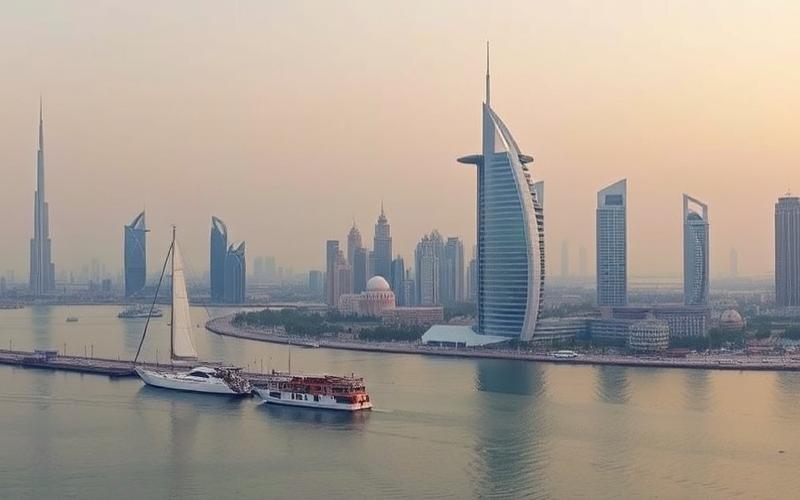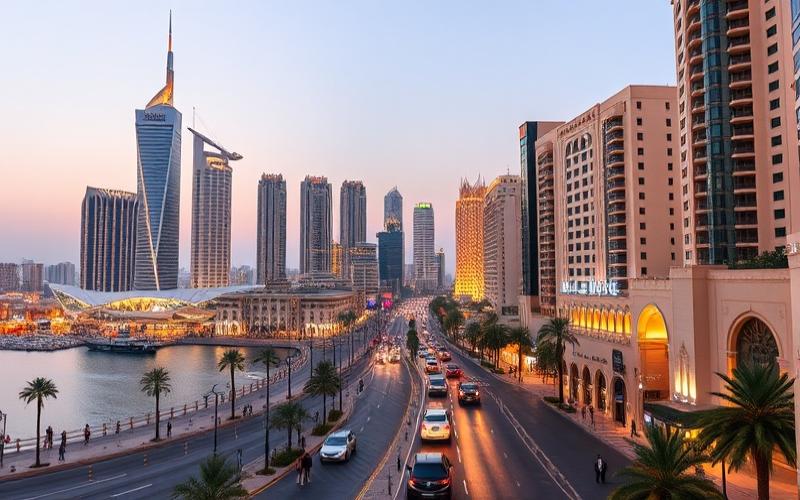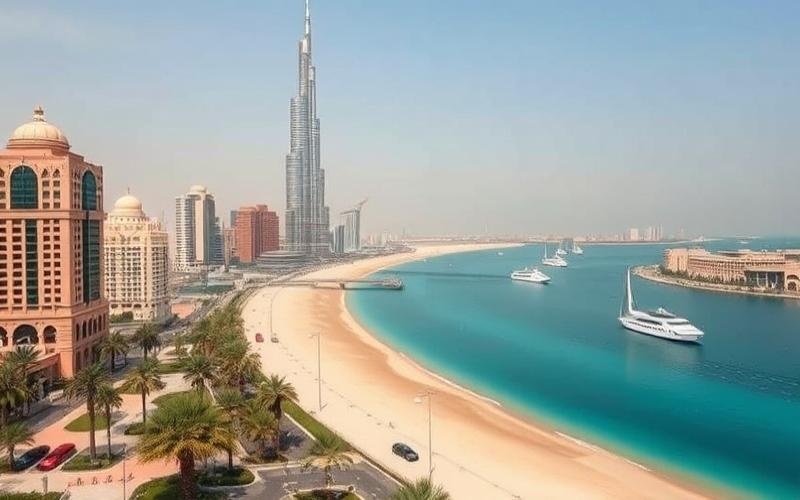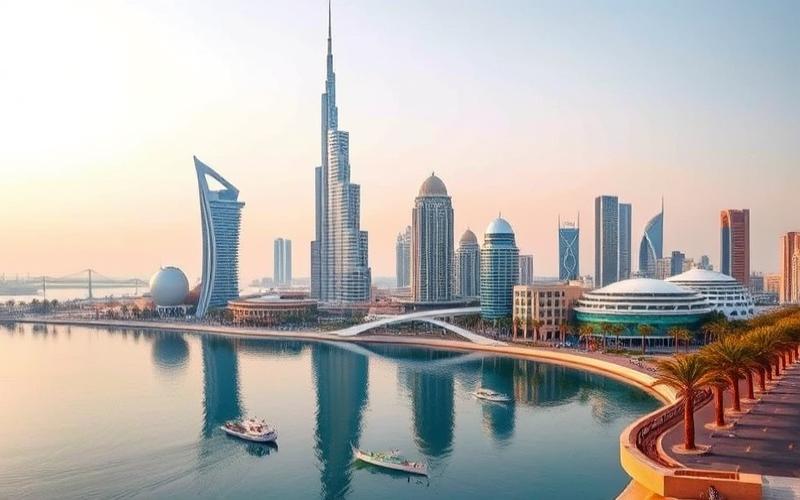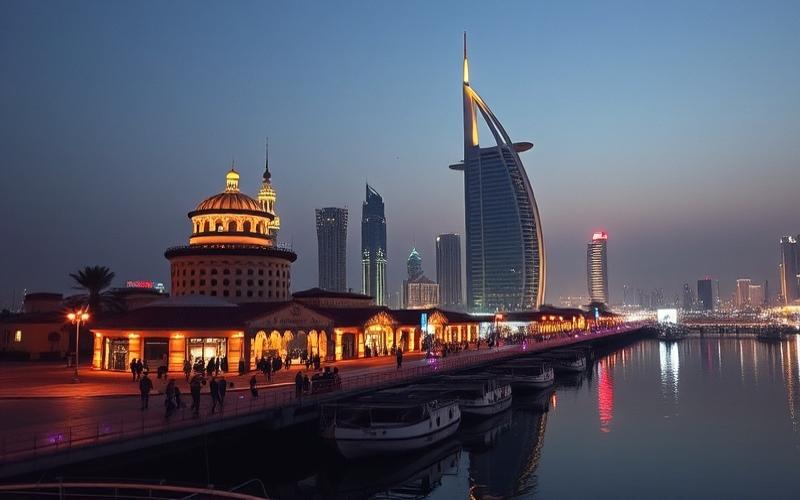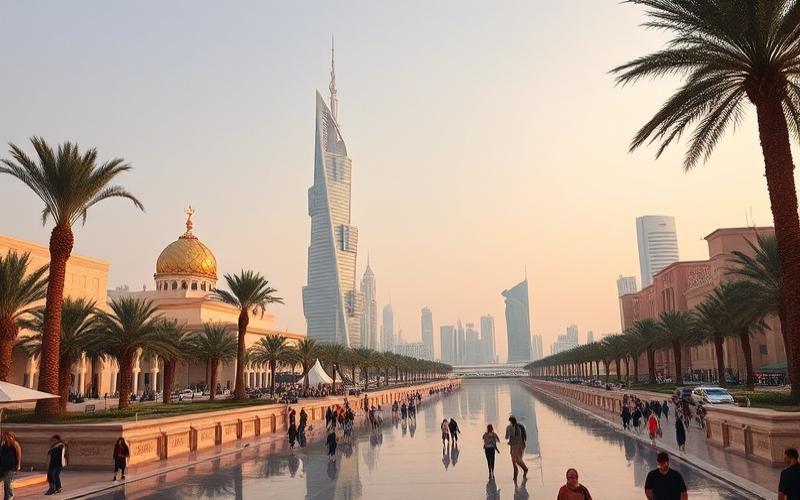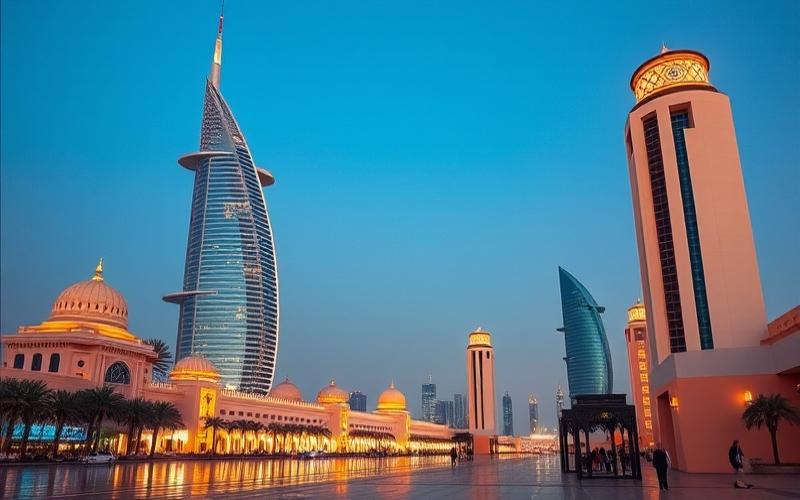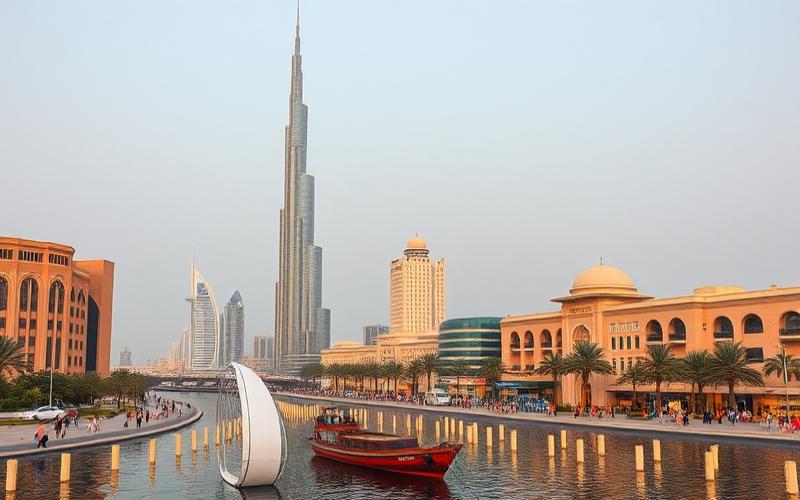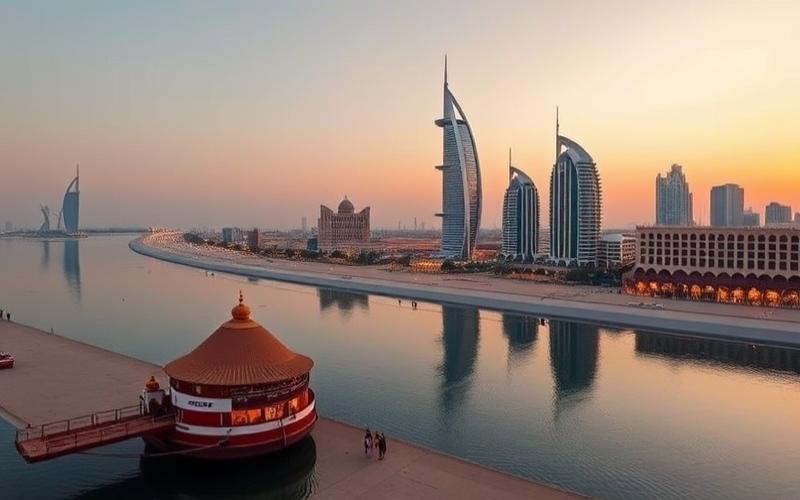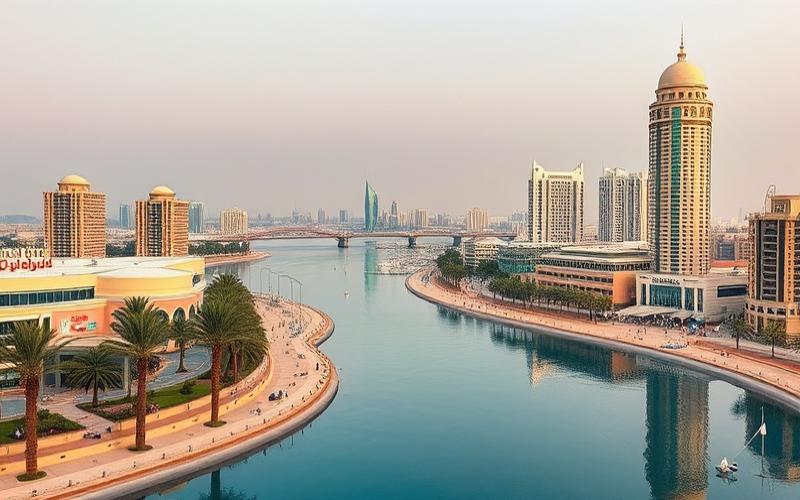
 Published on and written by Cyril Jarnias
Published on and written by Cyril Jarnias
Dubai, the jewel of the United Arab Emirates, is attracting an increasing number of real estate investors from around the world. With its dynamic economy, modern infrastructure, and status as an international hub, the city offers enticing opportunities for long-term rentals. Whether you’re a seasoned investor or new to real estate, this guide will provide you with the keys to succeed in your rental venture in Dubai.
Dubai’s Rental Market: Fertile Ground for Investors
Dubai’s real estate market is experiencing sustained growth, driven by robust demand for rental housing. According to the latest statistics, the occupancy rate for residential properties in Dubai reaches 88%, reflecting the sector’s vitality. Expatriates, who make up nearly 90% of the population, represent a significant clientele for long-term rentals.
The most sought-after neighborhoods for long-term rentals include:
- Dubai Marina
- Downtown Dubai
- Palm Jumeirah
- Jumeirah Beach Residence (JBR)
- Business Bay
These areas offer an attractive mix of modern infrastructure, proximity to business centers, and luxurious lifestyle, thereby attracting affluent and stable clientele.
Good to know:
The average rental yield in Dubai ranges between 5% and 8%, which is significantly higher than many other major cities worldwide.
Before embarking on your long-term rental venture in Dubai, it’s crucial to understand the legal framework governing this sector. The Real Estate Regulatory Agency (RERA) is the body responsible for overseeing all real estate transactions in Dubai, including rentals.
Key points to remember:
- Lease contracts must be registered with RERA through the Ejari system
- The standard lease duration is one year, but longer contracts are possible
- Rent increases are regulated and cannot exceed certain percentages set by RERA
It is highly recommended to consult a lawyer specialized in real estate law to ensure your contracts and practices comply with local legislation.
Good to know:
The Ejari system offers protection to both owners and tenants by formalizing the lease contract and facilitating the resolution of potential disputes.
The Art of Drafting a Solid Lease Agreement
Drafting a robust lease agreement is the cornerstone of a successful long-term rental in Dubai. This legal document defines the rights and obligations of each party, thereby preventing many potential conflicts.
Essential elements to include in your lease agreement:
- Complete identity of the parties (owner and tenant)
- Detailed description of the leased property
- Lease duration and renewal conditions
- Rent amount and payment terms
- Security deposit and refund conditions
- Allocation of expenses (maintenance, utilities, etc.)
- Specific clauses (pets, subletting, etc.)
It’s crucial to be thorough and precise in drafting the contract to avoid any ambiguity. Don’t hesitate to include photos or a detailed inventory of the property as an appendix to the contract.
Good to know:
In Dubai, it’s common for rents to be paid in multiple post-dated checks given to the owner at the beginning of the lease. This practice must be clearly stated in the contract.
Setting the Right Price: The Winning Equation for Your Rental
Determining the right rent for your property in Dubai is a delicate exercise that requires thorough analysis of the local market. Rent that’s too high may deter potential tenants, while rent that’s too low could affect your profitability.
Factors to consider when setting your rent:
- Property location (proximity to transportation, schools, shopping centers)
- Size and layout of the residence
- Overall condition and provided amenities
- Building facilities (pool, gym, security)
- Current rental market trends in the neighborhood
Consult the rental indices regularly published by RERA and compare with similar properties in the same area. Don’t hesitate to consult a local real estate agent for an accurate estimate.
It’s also important to consider the seasonality of Dubai’s rental market. The months from September to November are generally the most active, coinciding with the arrival of many expatriates.
Good to know:
RERA offers an online calculator to estimate permitted rent increases based on market developments.
Property Management: Cultivating Harmonious Relationships with Your Tenants
Effective property management is key to successful long-term rentals in Dubai. It involves not only property maintenance but also building positive relationships with your tenants.
Tips for optimal property management:
- Responsiveness: Quickly respond to tenant requests and concerns
- Preventive maintenance: Conduct regular inspections to anticipate problems
- Clear communication: Inform tenants of any changes or planned interventions
- Respect for privacy: Always provide notice before visiting the property
- Flexibility: Be open to negotiation for good tenants (lease renewal, minor adjustments)
Consider hiring a professional property management company if you don’t reside in Dubai or if you manage multiple properties. These experts can handle all aspects of the rental, from tenant selection to property maintenance.
Good to know:
In Dubai, it’s common for owners to cover certain costs such as air conditioning maintenance or homeowners association fees. Clarify these points in the lease agreement.
Optimizing Your Investment: Strategies to Maximize Your Rental Income
To get the most out of your rental investment in Dubai, it’s essential to adopt a strategic approach aimed at maximizing your income while minimizing risks.
Key strategies to optimize your investment:
- Niche targeting: Identify specific market segments (expatriates, families, young professionals) and adapt your offering accordingly
- Continuous improvement: Invest in renovations and modern amenities to maintain your property’s appeal
- Tenant retention: Offer incentives for long-term leases or renewals (small discount, property improvements)
- Diversification: Consider investing in different types of properties or neighborhoods to spread risks
- Tax optimization: Consult an accountant to leverage tax benefits related to real estate investment in Dubai
Don’t forget to closely monitor the evolution of Dubai’s real estate market. Major infrastructure projects, like Expo 2020 (rescheduled to 2021-2022), can have a significant impact on rental demand in certain areas.
Good to know:
Dubai offers free zones where foreign investors can benefit from tax exemption on rental income for a determined period.
Despite careful preparation, managing a long-term rental in Dubai can present challenges. Being prepared for these situations will allow you to handle them effectively.
Frequent challenges and solutions:
- Payment delays: Establish a clear follow-up procedure and know your legal recourse
- Property damage: Conduct regular inspections and document the property’s condition before and after rental
- Neighbor conflicts: Encourage communication between tenants and intervene if necessary for mediation
- Vacancy periods: Plan a financial reserve to cover expenses during unrented periods
- Regulatory changes: Stay informed about legislative developments affecting the rental market in Dubai
In case of major disputes, RERA offers a mediation and arbitration service to resolve conflicts between owners and tenants. Familiarize yourself with this procedure to be able to use it if necessary.
Good to know:
Dubai law provides for accelerated eviction procedures in case of non-payment of rent, but it’s always preferable to prioritize dialogue and negotiation.
Conclusion: Your Passport to Successful Rental Investment in Dubai
Investing in rental real estate in Dubai offers attractive prospects for savvy investors. With a thorough understanding of the local market, rigorous management, and a customer-focused approach, you can build a profitable and sustainable real estate portfolio in this dynamic city.
Remember that the key to success lies in careful preparation, proactive management, and constant adaptation to market developments. By following the advice and strategies presented in this guide, you’ll be well-equipped to navigate the sometimes turbulent waters of rental investment in Dubai.
Disclaimer: The information provided on this website is for informational purposes only and does not constitute financial, legal, or professional advice. We encourage you to consult qualified experts before making any investment, real estate, or expatriation decisions. Although we strive to maintain up-to-date and accurate information, we do not guarantee the completeness, accuracy, or timeliness of the proposed content. As investment and expatriation involve risks, we disclaim any liability for potential losses or damages arising from the use of this site. Your use of this site confirms your acceptance of these terms and your understanding of the associated risks.


